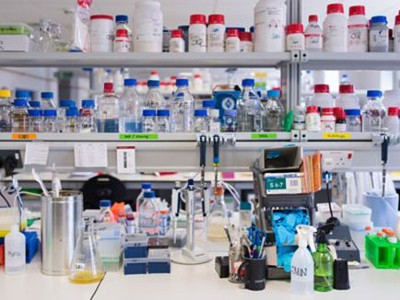
Credit: Getty
Personal statements — essays highlighting personal circumstances, qualities and achievements — are used extensively in science to evaluate candidates for jobs, awards and promotions. Five researchers offer tips for making yours stand out in a crowded and competitive market.
STEVE OH: Convey personal qualities beyond academic interests
Steve Oh is director of the Stem Cell Processing Group at the A*STAR Bioprocessing Technology Institute in Singapore.
As a principal investigator, I have read a good number of personal statements from students applying for science scholarships and jobs. The ones that stand out recount the applicant’s biography, bringing out their character as well as their professional qualities.Personal statements are often centred on academic and research achievements. But, in my opinion, a good scientist should also demonstrate social skills, be interested in making an impact on society through, for example, entrepreneurship, and have awareness of the world outside the country they live in. Memorable personal statements tend to bring out ‘soft’ skills, such as having macro-level thinking abilities and awareness of the impact that science can have on society.
Careers Collection: Publishing
To achieve this balance of professional and personal, consider two elements. First, explain your motivations to pursue a scientific career. These might include a family illness, an inspiring talk by a scientist, or great mentorship from a colleague. Second, describe how you have gone out of your way to get experience in science, such as proactively seeking opportunities for a laboratory internship, or what you have learnt from overcoming difficulties with your experiments. This information brings out qualities, such as curiosity and perseverance, that are crucial to being a good scientist.
I vividly remember the personal statement of one of my PhD students. He described his struggle with having only one healthy kidney — and how, despite this, he continued to do sports like rock climbing. He also wrote about how he did badly in his undergraduate studies: he had to take a year off to recharge before returning to school and excelling. His story shows resilience and honesty — traits that I love in a researcher.
SILVIA KARIUKI: Do not be afraid to defend your decisions
Silvia Kariuki is a postdoctoral fellow at the Kenya Medical Research Institute (KEMRI) Wellcome Trust Research Programme in Kilifi.
When I was planning to return to Kenya, where I grew up, to start a postdoctoral project, fellow researchers, friends and family members all asked why I was choosing to go back. They felt my career would suffer because Kenya’s scientific infrastructure is not as advanced as that in the United States, where I spent 13 years working and completing my undergraduate and PhD degrees.
Two years into my return to Kenya, when writing my personal statement for the Wellcome International Training Fellowship to follow up on my postdoctoral project, I explained that the Kenya Medical Research Institute–Wellcome Trust Research Programme in Kilifi could provide a good research environment for me. I would be able to study human genetic variants that confer protective effects against severe malaria infection, and my research would have a real-world impact by informing the production of malaria therapies. In my personal statement, I wrote that I wanted to pursue my scientific career in Kenya despite the scepticism I had faced — and it convinced the fellowship committee that I had thought deeply about my career move.
I also seek advice from mentors when writing a personal statement. I usually send mine to two to three senior scientists who have had more experience writing them and who have been on review committees for fellowship applications. One suggestion I usually get is to be ‘more human’. The judges would like to hear your personal voice and read about your motivation, even if these might be unconventional.
KELLY CLANCY: Use stories to show who you are
Kelly Clancy is a postdoctoral fellow in neuroscience at University College London.
Stories can make a personal statement stand out. It’s hard, of course — I’ve heard colleagues say it’s a trope for neuroscience-related personal statements to open with something like “I got interested in neuroscience after seeing my grandmother suffer from Alzheimer’s.” But I think that cynicism is unfair: it’s a beautiful impulse to get into science for a personal reason, and having a personal connection to science can drive important new insights.
I included the story that inspired the project I’d proposed in my application to the Branco Weiss postdoctoral fellowship. My best friend from high school had lost three limbs to an improvised explosive device while serving as a medic in Afghanistan. I described how this incident led to my interest in the field of neuroprosthetic devices that can restore motor capabilities, and the shortcomings I wanted to address with my work.
My advice for writing a personal statement is to not get bogged down in technical details. Don’t just focus on what you want to study — explain why. Demonstrate how you think. What led you to do the work or research you’ve undertaken so far? What are the questions that drive you and your science, and why are they important? Perhaps most importantly (and this is for all of us, not just those writing personal statements): ask, “What drives my science? Is it a reflection of my ego, wanting to be right or smart and to get high-profile publications? Or is it an extension of my will to do good in the world, my curiosity and my love of understanding?” The world is full of questions and problems to solve. Using stories in personal statements can help applicants to explain what scientific questions they care about, and why they matter.
With the support from the Branco Weiss Fellowship, my colleagues and I have since developed neuroprosthetic techniques that were just published1 and used these methods to explore interesting basic neuroscience questions and less-invasive neurosprosthetic interfaces.
WEI GAO: Demonstrate ambition and don’t exaggerate
Wei Gao is an assistant professor of mechanical engineering at the California Institute of Technology in Pasadena.

Wei Gao, an assistant professor of mechanical engineering.Credit: Wei Gao
A personal statement should highlight your aspirations and dreams. A CV can list all your publications, but they won’t all be read thoroughly, and members of the selection committee might miss the significance of your work.
Think of a personal statement as a document that complements your CV. I use it to explain the big problems my research is tackling and its impact. In my application to be a World Economic Forum Young Scientist, I described my concerns about worsening mental health in our society and discussed how my research on wearable sensors can improve early diagnosis of mental illness by sensing metabolites such as cortisol, a stress-related hormone, in sweat. It would be difficult to explain my aspirations clearly in a short, typically list-based, CV. In a personal statement, I can demonstrate my ambition in greater detail.
A good personal statement should avoid exaggerating your contribution. This is especially true for a multi-author paper on which you didn’t have a leading role. Focus on the work that you led and to not overstate your contributions to your field. Even if your contribution was significant, being humble in a personal statement is a good quality. Research is a culmination of the efforts of many researchers, and is never attributable to just one person.
ABHIMANYU VEERAKUMARASIVAM: Break the essay down and tailor it to your audience
Abhimanyu Veerakumarasivam is dean of the School of Medical and Life Sciences at Sunway University Subang Jaya in Malaysia.

Abhimanyu Veerakumarasivam in the lab.Credit: Sunway University
One way to simplify the writing process is to break your personal statement down into several key elements, including who you are, what you have accomplished, why you are applying for a role or award and how you will contribute to the organization.
When I was organizing the Association of Southeast Asian Nations (ASEAN) Science Leadership Programme from 2017 to 2019, my committee and I divided the application statement into a few questions focused on the ‘who, what, why and how’, which would help applicants to better structure their essays. I found this format particularly useful because, in Asia, our default culture is to not stand out, and many qualified candidates might be too shy to share their personal stories or too humble to share their achievements.
I found that creating a more defined structure around the personal statement allowed applicants to reflect on the experience they have gained from working in the region, which has many low-income countries and little investment in science. I would not always get these details in an open-ended personal essay.
One candidate discussed the huge disparities in science in the ASEAN region and his desire to bridge the gaps. By doing so, the candidate demonstrated that he had a good awareness of his environment and the unique challenges of working in that setting while highlighting his willingness to take action to bridge the gaps.
Applicants should also tailor their personal statements to their audience. For instance, students applying to graduate schools and scholarships will often send generic personal statements with their applications. If applicants want an academic institution to invest in them, then their personal statements need to reflect a genuine interest in the organization they’re applying to. The candidates with better statements usually include details of labs they are interested in working in and specifics about research topics they find fascinating.


 How to write a first-class paper
How to write a first-class paper
 Novelist Cormac McCarthy’s tips on how to write a great science paper
Novelist Cormac McCarthy’s tips on how to write a great science paper
 Dear grant agencies: tell me where I went wrong
Dear grant agencies: tell me where I went wrong




